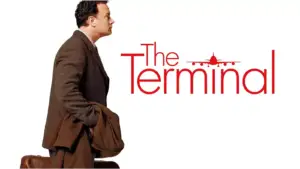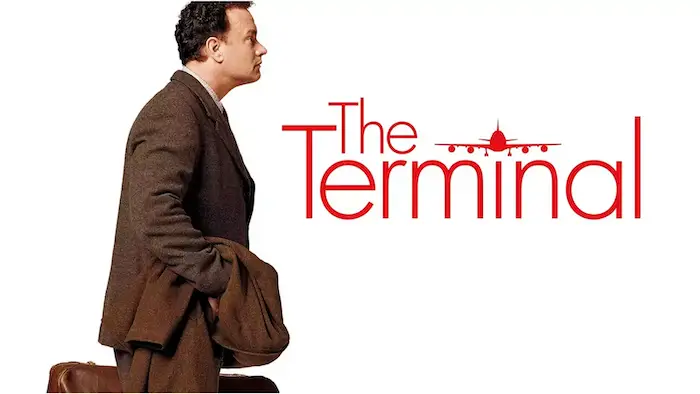
Sacha Gervasi’s journey highlights the power of persistence. From The Terminal to future projects, his insights are inspirational.
Perseverance often separates the dreamers from the doers — even in the LaLa Land known as Hollywood. Sacha Gervasi, a British-born director and screenwriter, knows this all too well. His roller-coaster ride through the film industry offers a compelling look at the power of persistence in the face of seemingly insurmountable odds.
Sacha Gervasi’s Hollywood story didn’t start with a bang, but with a quiet move to Los Angeles in 1995. Fresh-faced and eager, he enrolled in UCLA’s graduate screenwriting program. Like many before him, Gervasi quickly realized that talent alone wouldn’t cut it in Tinseltown. The industry’s notorious unpredictability meant he’d need grit and determination to match his ambition.
His first real taste of success came when he co-wrote The Big Tease with comedian Craig Ferguson. It was a foot in the door, but Gervasi was about to learn that in Hollywood, every step forward can feel like two steps back.
The Terminal: A Test of Will
Sacha Gervasi’s big break – and biggest challenge – came with The Terminal, a project starring Tom Hanks that Steven Spielberg would eventually direct. Inspired by the real-life saga of Mehran Karimi Nasseri, who lived in Charles de Gaulle Airport in Paris for 18 years, the story captivated Gervasi. But bringing it to life on the page proved to be a Herculean task.
In a candid interview on the “Script Apart” podcast, Gervasi laid bare the struggles he faced while writing The Terminal. He described moments of crippling self-doubt and frustration, even being temporarily removed from the project due to issues with the script’s development. “If you don’t at a certain point think, ‘There is no point in continuing,’ and your family is saying you’ve got to get a real job … if you’re not in that position at some point, it’s a tough road,” Gervasi admitted.
Many writers might have thrown in the towel at this point. But Gervasi chose a different path. He holed up in a guest house, away from the noise and distractions of everyday life, and poured himself into rewriting the script. This period of intense focus and determination led to a breakthrough that not only saved the project but elevated it to new heights.

The Power of Mentorship and Collaboration
The support of a mentor bolstered Sacha Gervasi’s doggedness during this challenging time. This experienced guide offered crucial feedback and encouragement, helping Gervasi navigate the complexities of the screenplay and rebuild his confidence.
“The truth of what happened is I was actually fired off the movie because I just didn’t deliver a script,” Gervasi confessed. “And I called up a very good friend who shall remain nameless, who is a fantastic, extraordinary writer and filmmaker. And he very kindly told me to come live at his guest house. And so I lived at his guest house and he said, ‘Every morning at 8 a.m., there’s going to be pages on the table and then I’ll give you notes.’
“And so I did that. And anyway, he saved my life.”
The importance of mentorship in Hollywood is often overlooked, but Gervasi’s experience highlights just how vital it can be. Having someone to turn to for advice and perspective can make all the difference when the going gets tough.
Collaboration also played a significant role in shaping The Terminal. When Spielberg came on board, he brought his unique vision to the project. Gervasi’s original script had darker undertones, reflecting the anxieties of the post-9/11 world. Spielberg, known for his ability to balance light and dark, guided the screenplay toward a more hopeful narrative.
This collaboration between Gervasi and Spielberg improved the script and also taught Gervasi valuable lessons about the art of storytelling and the importance of flexibility in the creative process.
Lessons From the Trenches
Sacha Gervasi’s journey with The Terminal is a masterclass in indefatigability. It shows that setbacks, while painful, can often be the catalysts for growth and unexpected success.
In his podcast interview, Gervasi stressed the importance of resilience in screenwriting. “You have to allow yourself to be terrible,” he said. “Then you get to be mediocre. Then you get to be bad. Then you get to be decent. Then you get to be passable. If you just keep going, you might get too good eventually.”
This mindset of embracing the struggle and pushing through challenges is crucial for anyone looking to make it in Hollywood — or anywhere else, for that matter. Whether it’s writer’s block, harsh criticism, or the nagging fear that a project might never see the light of day, perseverance is the key to moving forward.
Sacha Gervasi’s Advice for Aspiring Screenwriters
For those dreaming of seeing their words on the big screen, Sacha Gervasi’s story offers valuable insights:
— Embrace the Grind: Writing is often a messy, frustrating process. Accept that there will be tough days, but don’t let them stop you from showing up and doing the work.
— Find Your Tribe: Seek out mentors and build a network of supportive colleagues. Don’t be afraid to ask for help or advice when you need it.
— Stay Open to New Ideas: Collaboration can breathe new life into a project. Be willing to listen to feedback and consider different perspectives.
— Keep Going, No Matter What: Persistence is often the deciding factor between success and failure. When giving up seems tempting, remind yourself why you started in the first place.
The Long Game
Sacha Gervasi’s experience with The Terminal is a testament to the power of perseverance. Despite the obstacles he faced, his determination to see the project through ultimately paid off, resulting in a work of art that continues to resonate with audiences years later.
In a business where rejection is common and overnight success is rare, Gervasi’s insights remind us that tenacity isn’t just a virtue — it’s a necessity for those who dare to dream in Technicolor.
By staying committed to your vision, seeking out mentorship and collaboration, and pushing through the tough times, you, too, can write your own success story. The road may be long and winding, but as Gervasi’s journey shows, the view from the top is worth the climb.
